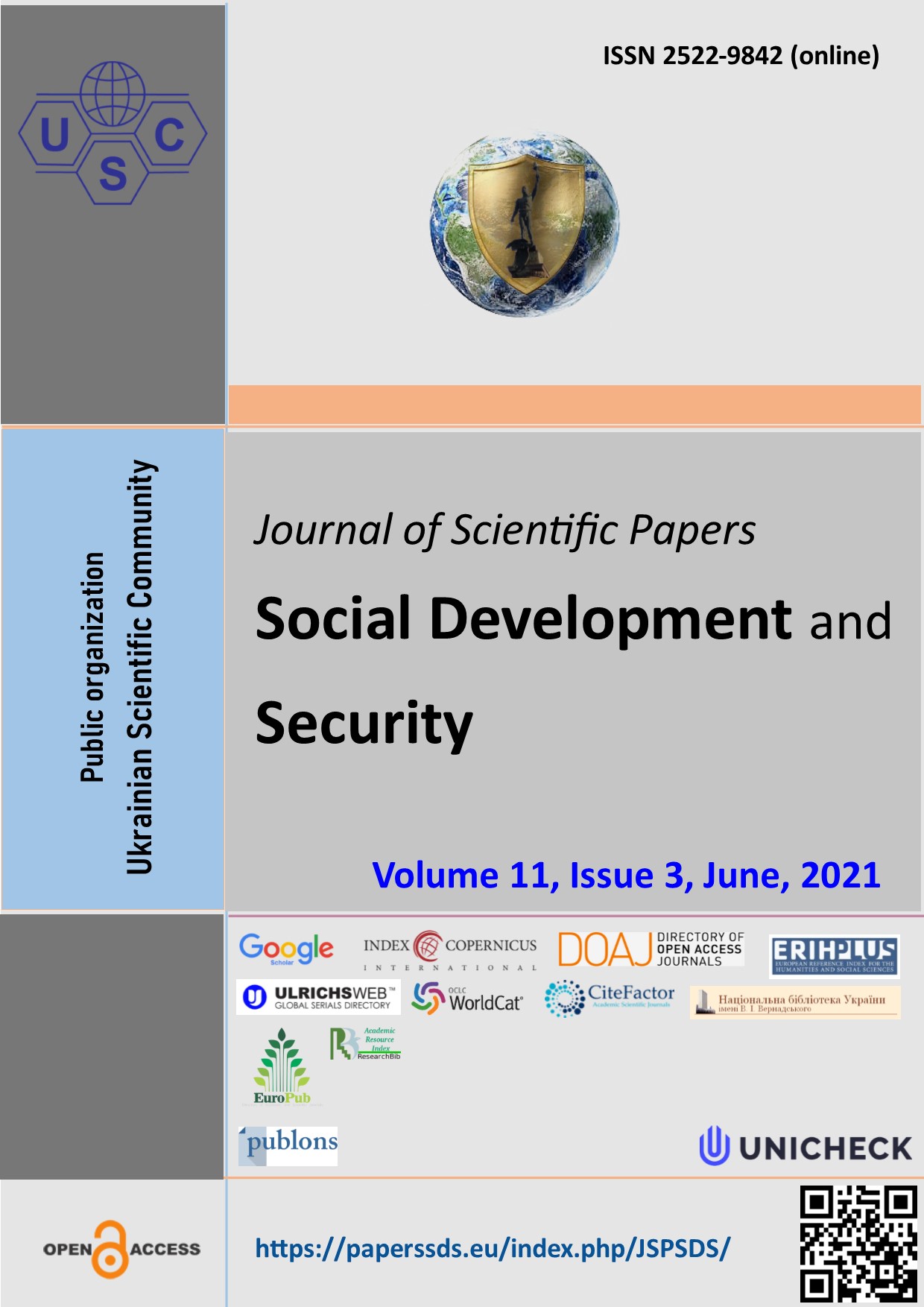Psychological program of development of personal determinants of choice of effective coping strategies of participants of the joint force operations
Abstract
Рurpose of the article is to reveal the features of the psychological program for the development of personal determinants of the choice of coping strategies. The structure of carrying out the basic stages of psychological work is offered. Peculiarities of conducting classes, basic methods and techniques of working with participants of the joint forces operation are analyzed. The following psychological tools were used in the study: art therapy: music therapy, isotherapy, sand therapy, visualization techniques, psychoeducation, training, counseling. The study was conducted with 60 respondents during a psychological program for the development of personal determinants of the choice of effective coping strategies at the stage of decompression, after a long stay in the area of Operation Joint Forces. It is determined that during each stage, servicemen undergo a comprehensive psychological recovery, which allows them to continue military service and perform assigned tasks. During the psychological program, the following areas of personality are identified that play an important role in choosing effective coping: еmotional-regulatory, value-normative, personality-reflexive. The proposed program was implemented through a number of activities that were carried out with the respondents during their decompression according to the established schedule and schedule. The proposed program activates the personal traits of servicemen, who act as a resource for choosing coping strategies. By identifying the personal determinants of coping strategy choices, military personnel are more likely to use copings that are more effective in combating stress, while less likely to use copings of passive stress adaptation.
Downloads
References
Alex Kocha, Vincent Yzerbytb,Andrea Abelec, Naomi Ellemersd, Susan T.Fiske (2021). Comparing models across interpersonal, intragroup, intergroup, several-group, and many-group contexts. Advances in Experimental Social Psychology, 64, 1–68. DOI: 10.1016/bs.aesp.2020.11.001
Brew, F.P., Cairns, D.R. (2004) Do culture or situational constraints determine choice of direct or indirect styles in intercultural workplace conflicts? International Journal of Intercultural Relations, 28 (5), pp. 331-352. http://doi.org/10.1016/j.ijintrel.2004.09.001
Chen, G.-M. (1992) Communication Adaptability and Interaction Involvement as Predictors of Cross-Cultural Adjustment. Communication Research Reports, 9 (1), pp. 33-41. DOI: 10.1080/08824099209359895
Billings A.G., Moos R.H. (2013). Coping, stress and social resources among adults with unipolar depression. J. Pers and Soc. Psychol. Vol. 46, рр.877–891.
Clark K., and C. Bormann, Cropanzano, R., James K. (1995) Validation evidence for three coping measures. Journal of Personality Assessment. 65, 434–455.
David M. Fisher, Rebekah D. Law (2020). How to Choose a Measure of Resilience: An Organizing Framework for Resilience Measurement. Applied psychology-an international review-psychologie appliquee-revue international. 643–673. DOI: 10.1111/apps.12243
Диагностика в арт-терапии. Метод «Мандала» / под ред. А. И. Копытина. -СПб. : Речь, 2002. 80 с.
Кокоренко В. Л. Арт-технологии в подготовке специалистов помогающих профессий / В. Л. Кокоренко. — СПб. : Речь, 2005. Кокоренко В. Л. Арт-технологии в подготовке специалистов помогающих профессий: [коллажи, маски, куклы]. СПб. : Речь, 2005. 99с.
Комар Зоран. Психологічна стійкість воїна: підручник для військових психологів. К: Stabilization Support Services. 2017. 185с.
Копытин А. И. Техники аналитической арт-терапии. СПб. : Речь, 2007. 186 с.
Лебедева Л. Д. Практика арт-терапии: подходы, диагностика, система занятий. СПб. : Речь, 2003. 256 с.
Abstract views: 274 PDF Downloads: 296
Copyright (c) 2021 Maria Yarmolchyk

This work is licensed under a Creative Commons Attribution 4.0 International License.
The authors agree with the following conditions:
1. Authors retain copyright and grant the journal right of first publication (Download agreement) with the work simultaneously licensed under a Creative Commons Attribution License that allows others to share the work with an acknowledgment of the work's authorship and initial publication in this journal.
2. Authors have the right to complete individual additional agreements for the non-exclusive spreading of the journal’s published version of the work (for example, to post work in the electronic repository of the institution or to publish it as part of a monograph), with the reference to the first publication of the work in this journal.
3. Journal’s politics allows and encourages the placement on the Internet (for example, in the repositories of institutions, personal websites, SSRN, ResearchGate, MPRA, SSOAR, etc.) manuscript of the work by the authors, before and during the process of viewing it by this journal, because it can lead to a productive research discussion and positively affect the efficiency and dynamics of citing the published work (see The Effect of Open Access).
















